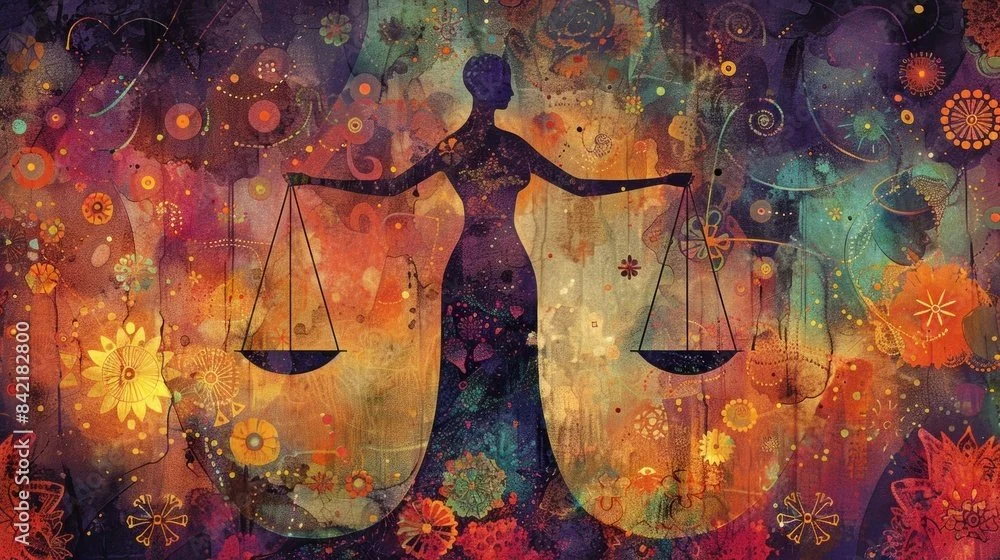
Difficulties & Challenges of Two
Imbalance in Relationships, “People-Pleasing”
When less healthy, Twos get into trouble around imbalance in relationships. Because they want to be loved and accepted, Twos can begin to move towards others in an imbalanced way.
There is an inherent one-sidedness in the role of being the “Helper”. Cast as the one who gives, who takes care of the needs of others, Twos can end up in relationships with “Takers”, or they may just bring their tendency to “caretake” to how they relate to their loved ones. This is known as co-dependency, which can range from mild to extreme in degree.
Codependency refers to a relationship pattern in which one person assumes responsibility for meeting another person’s needs to the exclusion of acknowledging their own needs or feelings. Codependency as a concept originated in the field of addiction- the enmeshed relationship the enabler has with the addict. But the idea of codependency today refers to imbalanced relationships generally.
When Twos are less healthy this focus on meeting the other person’s needs to the exclusion of their own means there is no give and take, none of the reciprocity that characterizes a healthy relationship. The Two’s natural gift for love and caring for others is now out of balance and the caring is done at their own expense.
Underneath the Two personality is the desire to be liked- and a fear of rejection. The Two is looking for their value in the eyes of others, which creates the focus on what the other wants. I earn my worth by pleasing you. So now it doesn’t really matter what I want, and my wants go out of awareness. I have an insecure feeling about my lovability that makes it hard to assert myself.
Twos can be highly sensitive to the moods and feelings of others and will adapt their own words and behaviors to avoid a negative reaction. Twos can hide their own feelings and edit out anything negative for fear of disapproval. They can erase themselves and their needs.
Comedian Sarah Cooper’s #1 tip for “getting better at pleasing people” and “learning to get the least out of life” is “always seem happy with everything”.
Understanding that caretaking, pleasing others, giving to the exclusion of one’s own needs, and presenting a façade of unfailing kindness, is all an effort to be liked or loved, reveals the irony that the unhealthy Two is “needy”, although they are likely unaware of this. You can sense the pain underneath this pattern- there is a lack of self-worth. Giving others the power to judge whether we are loveable is giving away our inner sense of solid worth.
This is sometimes called having “other-esteem” rather than self-esteem- I feel dependent on your validation.
We all want to be liked and loved, so we can all probably relate to this insecure feeling at times- how it’s easy to be knocked off balance by feeling rejected or having someone’s love withdrawn. But if we depend on that other person’s approval to feel good about ourselves, we are in trouble.
Another way of describing this constricted Two feeling is to say they “need to be needed”. Byron Kaitie, creator of The Work and likely a Two, talks about the eventual cost of believing we need other people’s love. We can become “a slave for their approval”. Trying to figure out what others would like us to be and changing ourselves to become that means creating a façade. We can end up losing what is genuine about ourselves and our relationships.
Over-Giving, “Giving to Get”
As the Two becomes less healthy, their natural generosity goes into overdrive. Since the Two wants to be liked by everyone, they can end up almost constantly helping and giving to others.
Twos can become experts at knowing what others want- they will anticipate what others might need and provide it. They will be on the lookout for something someone might need or ways to help. Twos move towards almost everyone in their world to help or give- family, friends, clients, colleagues, neighbors and so on. Because giving is what allows them to feel ok about themselves, this can easily descend into “over-giving”.
At their worst, Twos can smother others and be intrusive, suss out other’s needs or even make them up- imagining they know what someone else needs. What unhealthy Twos don’t realize is that others don’t necessarily want what they are giving, and they may be wrong about what is helpful. For example, with children this may be helicopter parenting, doing things for children that they need to learn to do for themselves.
Over-giving like this can lead to exhaustion and burn-out. It’s more acceptable to the Two personality to feel overburdened, burned out and exhausted, than it is to ask for what they need and want themselves. We will see more about this issue of self-neglect below.
The giving of an unhealthy Two can not only become excessive, but it can also start to be more conditional. Twos can go from expressing their generosity freely and without expectation of reward, to “giving to get”. This means they increasingly give with “strings”, hoping for a return or recognition. They may check in to see how their care has been received- “how did you like that dinner?” – or fish for compliments. Or they may just secretly hope for a reciprocal response.
Twos also give in terms of compliments. Twos prefer to give praise and find it very difficult to give negative feedback. Compliments can descend into flattery- Twos will give what Riso-Hudson call “strokes”. This can show up as “fawning” energy.
Twos may not know this about themselves- they may feel they are just givers- but others may sense they are being manipulated. There is a natural wish to give back in healthy exchanges- but when giving does not feel clean to the recipient, the implied obligation to give back can be resented. Unwanted or excessive giving can create this feeling. At its lowest point, this “giving to get” strategy can create a “martyr” energy. Twos may express or signal that they feel unappreciated for all their efforts. (“After everything I’ve done for you”)
Twos need to become aware of and honest about their hidden motivations and recognize that their giving is not as selfless as they imagine. Part of the Twos growth is to see through the motivation for their giving so they can begin to recognize what they want and need - and learn to ask directly.
Another way of understanding the over giving of an unhealthy Two is to remember they want to be liked and seen in a certain way. They are promoting an “image” of themselves as a giving, caring, loving, kind and generous person. This is their self-image and how they want others to see them – as “selfless”. Being “selfish” is taboo and needing or wanting anything for themselves feels increasingly selfish. Under stress the less healthy Two ramps up the giving rather than recognizing their own needs.
This is the meaning of Pride which is the Vice of the Two. Twos will often have trouble seeing this about themselves because they feel they don’t brag or promote themselves, or even think that highly of themselves, which is true. But this is Pride in the sense of wanting to feel needed, indispensable. Can you sense the pride in the energy of “You have needs, I don’t have needs, how can I help you?”
Awareness of the hidden motivation can unlock the whole indirect strategy for the Two and begin to loosen the need to be giving and not receiving. We can all benefit from greater clarity in this area of giving and receiving freely- unhooking from our hidden agendas.
Self-Neglect, Boundaries
We have seen how the focus on what others want creates a loss of awareness of the Two’s own wants and needs. Less healthy Twos may be literally unaware of what they need in a very basic sense. For example, they may spend the whole day running around caring for others and forget to eat, not noticing they are hungry. They may not notice when they are sick or ignore symptoms. They may push through exhaustion. Twos are prone to burn out at work, and they often work in helping professions where client needs are endless.
If you ask a Two “what do you want?” you may get a blank look- it does not compute. So, just putting their attention on themselves, allowing themselves to become aware of what they want and need, can be difficult.
Twos also suffer from the feeling that taking care of themselves is “selfish”. Twos deny themselves things that might be considered normal self-care because it feels selfish, such as a massage, a nap, a long bath, or a vacation. Most of us can probably relate to this feeling to some degree, especially women. There is a gender aspect to the issue of self-neglect since there is a cultural endorsement for women to take care of others and deny themselves. You can hear this in the way that self-care is often framed – we “treat” ourselves to a massage for example. A sense of guilt or self-indulgence may be wrapped around self-care generally, especially for Twos.
(As a side note, many women initially wonder if they are Twos when typing themselves on the Enneagram, and men who are Twos may find it difficult to identify at first because it seems like a feminine type.)
To know what we need and to take care of ourselves, we must have a sense of ourselves as separate and worthy beings. This is often called having “healthy boundaries”- something many Twos lack.
In her book Set Boundaries, Find Peace, Nedra Glover Tawwab says “Boundaries will set you free.” Here is a list of what she calls Signs That You Need Boundaries:
-You feel overwhelmed
-You feel resentment toward people asking for your help
-You avoid phone calls and interactions with people you think might ask you for something
-You make comments about helping people and getting nothing in return
-You feel burned out
-You frequently daydream about dropping everything and disappearing
-You have no time for yourself
While this degree of feeling burdened may sound extreme, most Twos are likely to have had these feelings at some point in their lives. In fact, you could say Tawwab is describing stressed out Twos.
Setting clear boundaries is not easy for many of us. For example, how easy is it for you to say “No” in a direct, clear way without apology or explanation? What Tawwab calls “saying no without apologizing because it’s the healthiest choice for you at that moment”. Not surprisingly, Twos generally have a lot of trouble saying “No”.
While self-care and healthy boundaries can be a major issue in day-to-day life, examples like getting a massage or even serious issues like burn out can sound trite. On a deeper level, we are talking about something of critical importance- our need for self-realization. We all must be able to know what we want and need, to balance our own needs with the needs of others, and to feel a core sense of self-esteem and self-love.
Embracing self-love is part of the journey for Twos and the Two in all of us. It is radical.

Consider how understanding this issue of self-neglect ties together your understanding of Two. The whole gestalt of Two- being the Giver and the Helper, having empathy and being sensitive to what others need, taking care of others hoping to be liked and loved, losing touch with one’s own needs and feeling self-care is selfish- and how this pattern creates a fundamental imbalance in relationships. Maintaining a selfless image and this level of giving leads to exhaustion for the unhealthy Two- and even then, they may not notice how tired they are, or they may take “pride” in all their efforts. Healing the imbalance between self and other, trusting the flow of unconditional love and kindness, allows the Two to find self-love.
“I must undertake to love myself and to respect myself as though my very life depends upon self-love and self-respect.”











